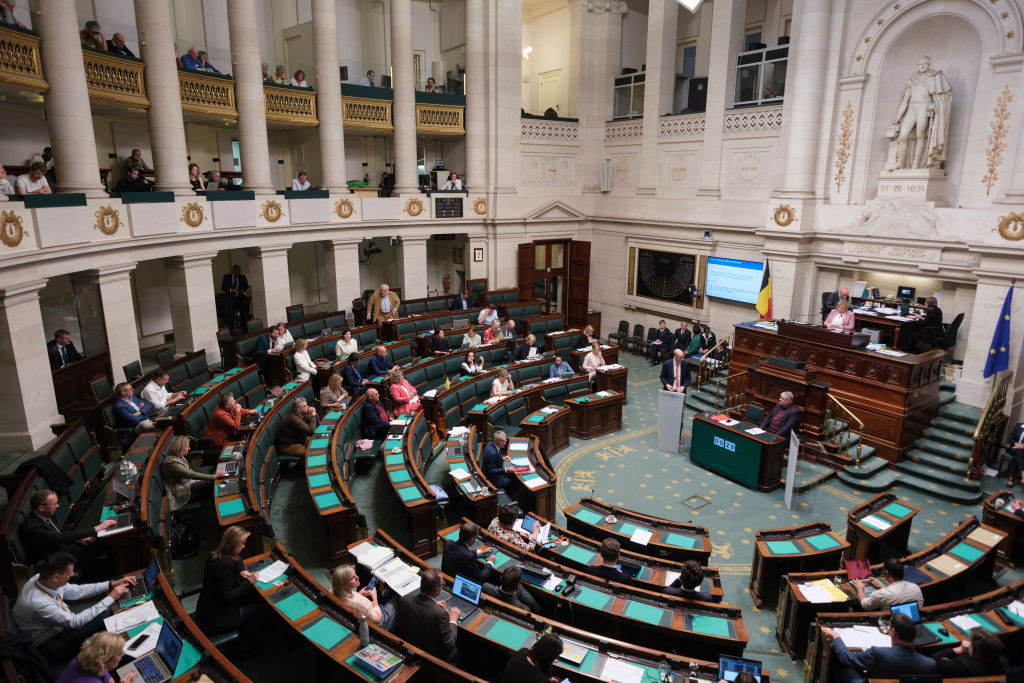Belgian Post Group (Bpost), the country’s leading postal service with the Belgian Government as majority shareholder, is refusing to work with Doorbraak, a right-of-centre news magazine.
Less than a month before the Belgian and European Parliament elections on June 9, Doorbraak produced a special election edition offering analysis and interviews with politicians and public thinkers.
After initially agreeing to co-operate, Bpost has since deemed the content too political and even claimed Doorbraak was not a “real” news medium.
Pieter Bauwens, editor-in-chief of Doorbraak, told Brussels Signal he had not encountered such an issue with Bpost before.
“This is the first time we’ve been portrayed as a political action group rather than a media company,” he said.
Bauwens further claimed that Facebook also seemed to be acting against Doorbraak.
“I expect this is because of our content, but it is hard to be sure, as it is difficult to contact them,” he said.
“It is a waste of energy for trivial matters, keeping us from doing our real job. Why can’t we just be a medium like the others?
“[The left-wing magazine] Humo is much more activist but they never encounter any difficulties, is this because they are part of the DPG Media group? Are they allowed more?
“It becomes terribly annoying to justify what you do, which is simply news, opinion, and columns,” Bauwens added.
The editor-in-chief also said that, alongside this latest incident, there had been ongoing issues with the basic services provided by the postal company and claimed that was a frustration shared by many.
Michael Freilich, MP for the centre-right N-VA party, told Brussels Signal: “The decision of Bpost to refuse Doorbraak access to address databases is very concerning.
“This is a revealing illustration of how deeply the political tentacles, especially those of the [Socialist Party] PS, have entrenched themselves in the structures of this government-owned company.
“It also constitutes a blatant undermining of press freedom, where a legitimate news medium is excluded solely because its content may not align with the world-view of certain political forces,” he added.
“This incident is clear evidence that Bpost no longer functions as a neutral and independent postal company but rather as an extension of certain political interests,” he claimed.
“Given these developments, this incident reaffirms the need to privatise Bpost, something that my party, the N-VA, has been requesting for some time.”
Central in the Doorbraak special edition were 14 critical questions about politics, for example: “Why do citizens feel politically homeless?” and: “Can the city decide over the rural municipalities?”.
Others included: “Is Justice still just?”; “Does uncontrolled migration disrupt our society?” and: “Why is the gap between the EU and its citizens so large?”
In a promotional move, Doorbraak‘s management had wanted to distribute copies using an address database provided by a division of Bpost that commercialises such information.
Initially, there were no issues. The magazine contacted Bpost’s commercial services and submitted its request in mid-February.
Bpost received a draft version of the magazine on April 4 and on April 11 offered delivery of the requested address file.
“But on the afternoon of April 25, just as all the copies had been printed and were ready for shipment, Bpost suddenly changed its stance,” said Doorbraak marketing manager Roan Asselman. “They abruptly refused to do business with Doorbraak.”
In its justification for the sudden and late reversal to work with the magazine, Bpost said: “Legally, we are not allowed to rent the addresses in our Selectpost database to political parties or related organisations.
“We consider the format and themes proposed for the mailing to be highly politicised, which is why we have decided to reject the order,” it added, referring both to the magazine’s cover and the 14 questions.
Doorbraak said its staff were unable to speak to those at Bpost who were responsible for the decision.
VVJ, the Flemish association for professional journalists, which Doorbraak is part of, denounced the Bpost move.
Charlotte Michils, general secretary of the VVJ, noted that the magazine is a “real” news medium, where professional journalists are employed, and added: “That in itself is a guarantee of quality.”
Kathleen Van Beveren, chief executive of E-logistics Eurasia at Belgian postal giant Bpost and a member of its executive committee, is stepping down from her role amid accusations of fraud and foul play inside the company. https://t.co/ZXbRl8PH5f
— Brussels Signal (@brusselssignal) August 9, 2023





